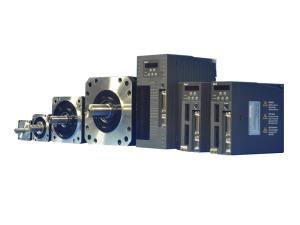Take you to know the INVT servo motor
Servo motors are the "muscles" of industrial robots and are one of the components of industrial robots. A servo motor is an engine that operates a mechanical component in a servo system and is an auxiliary motor indirect transmission. The INVT servo motor converts electrical signals into angular or angular velocity outputs on the motor shaft. As an actuator in the control system, INVT servo motor is one of the main factors affecting the performance of the robot. The servo drive system for industrial robots has a history of more than 50 years, especially in recent years, with the development of power electronics technology, motor permanent magnet technology, and control bus technology. The servo drive has various processing speeds, response speeds, and control accuracy. A big improvement has been made. The Invitro servo motor is used to drive the joints of the robot. It is required to have a high power mass ratio and torque inertia ratio, high starting torque, low inertia and a wide and smooth speed regulation scale. In particular, robot-end actuators (hands) should use motors with as small a volume and quality as possible. Especially when fast response is required, the servo motor must have high reliability and a large short-time overload capability. At present, high-start torque, high torque, low inertia AC/DC servo motors are widely used in industrial robots. Yingweiteng servo motor products are widely used in machinery, metallurgy, electric power, petrochemical, shipbuilding, aerospace, construction, transportation, scientific research and other fields. China's market demand is huge, following various industries, such as machine tools, printing equipment, packaging equipment, textile equipment, laser processing equipment, robots, automated production lines, etc., the requirements for process precision, processing efficiency and operational reliability are constantly improving. The demand for INVT servo motors will increase rapidly, and the AC servo will gradually replace the original DC brushed Invitro servo motor and stepper motor.


